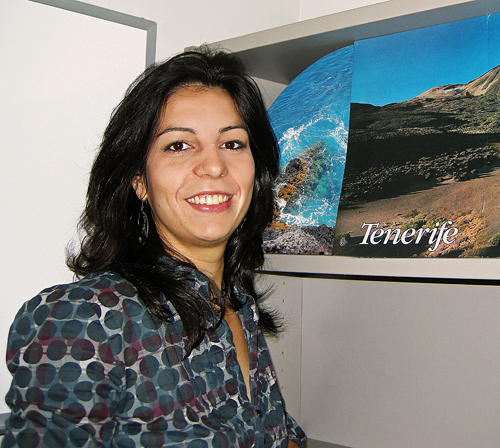
It’s inevitable that soldiers in combat who know their own lives and those of their colleagues are at risk will experience very high levels of stress. Yet the results are not always as traumatic as you might expect. For some soldiers, combat leads to ongoing mental health problems; others seem to be able to cope and adapt.
Psychology professor Gloria Gonzalez-Morales studied those differences while she was working with Paul Bliese at the Walter Reed Army Medical Center in Germany. “We were screening soldiers for mental health issues when they returned from combat,” she explains. The researchers then correlated the results of the screenings with information about the soldier’s group. “We found that cohesion and social support in the battalion helped to prevent psychological problems, at least in the short term.”
In her first year at U of G, Gonzalez-Morales continues to be involved in this work, hoping to find the characteristics of leaders who can create these supportive qualities within their units. But life in the military is just one aspect of her research focus on work-related stress and how it can be managed. Her doctoral thesis at Spain’s University of Valencia, for example, looked at strategies used by men and women to cope with stressful work situations.
“Studies in the past have shown that women more often seek out social support to cope with stress, while men use more problem-solving approaches,” she says. “In my work, I found that when you control for the person’s status and control of resources, there is no gender difference. People with more status and control tend to use problem-solving approaches, those with less go for social support.”
Gonzalez-Morales looked at work situations in two different industries: teaching, which tends to be predominantly women, and banking, which tends to be more male-dominated. “I thought that perhaps in female-dominated industries, the men might feel more able to ask for social support, but I didn’t find any difference between the two.”
She did, however, find that the effectiveness of the strategies used differed between men and women. “For women, seeking social support was more effective in reducing stress; for men, the problem-solving approach was more effective,” she explains. “For men, getting support from others was actually linked to higher levels of distress.”
Originally from Spain, Gonzalez-Morales did her undergraduate work in the Canary Islands at the University of La Laguna, moving to mainland Spain for graduate work. But she managed to keep her love of travel fed by doing research internships at different universities each summer.
Her first internship was at York University, and that, she says, is when she fell in love with Canada. “I loved summer in Toronto and knew I wanted to come back. In fact, I took a photo of my husband in front of the CN Tower and have had it in my office everywhere I’ve moved.”
The next school break was spent at Walter Reed in Germany, and Gonzalez-Morales spent the following summer at the University of Lund in Sweden. After completing her PhD, she accepted a post-doctoral appointment at George Mason University in Virginia, followed by a second at the University of Delaware.
“Now that I’m in Guelph, I want to bring together several strands of my work,” she says. “I want to look at the positive side of stress. Stress can be negative, but for some people and some situations, it can also be experienced as a challenge that promotes growth.”
She says people who see themselves as competent and capable, people who are generally optimistic, and people who are oriented to the future are more likely to experience stressors as challenges, not hindrances. “Your own temperament can transform stress into an opportunity to grow.”
Gonzalez-Morales is also investigating the ways work and family life can affect each other in positive ways ― a different perspective from much of her previous research, which shows how there can be conflict and stress between these two aspects of life.
“What we found is that if you are positively engaged in your work that spills over to your family life. You have more energy and enthusiasm,” she explains. “If you have a good day at work, you are likely to be happy when you get home. The key seems to be in savouring and appreciating the positive experiences.”
One of the positive experiences she savours is dance. “I’m crazy about dancing ― ballet, hip hop, belly dancing, modern dance, everything.” She confesses that she is also addicted to yoga, enjoys hiking and plans to indulge her passion for travel. This summer, for example, she’s combining a conference in Australia with some time to explore the Great Barrier Reef and other scenic areas of that country.